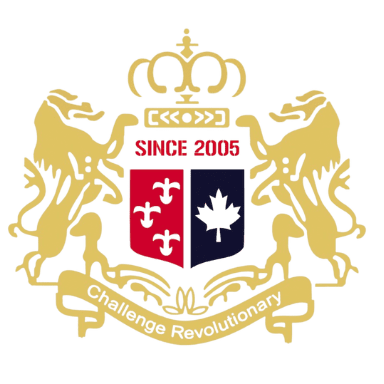In a world increasingly aware of environmental concerns, sustainable Fashion has emerged as a beacon of change in the realm of clothing and accessories. It goes beyond trendy designs and chic styles, delving deep into the ethical and ecological aspects of the fashion industry. Sustainable Fashion encompasses practices that prioritize environmental conservation, ethical production methods, and social responsibility throughout the entire supply chain. From eco-friendly materials and fair labour practices to reducing waste and promoting circularity, this Fashion aims to minimize the negative impact of Fashion on the planet and its people. So, let’s learn about its importance in fostering a more conscious and responsible approach to clothing and style.
What is Sustainable Fashion?
It refers to clothing and accessories that are created and produced with consideration for the environment, social equity, and economic viability. It encompasses a range of practices aimed at reducing the negative impact of the fashion industry on the planet and its inhabitants. This includes using eco-friendly materials like organic cotton, recycled fabrics, and sustainable alternatives to leather and fur. Sustainable Fashion also promotes ethical manufacturing processes, such as fair wages, safe working conditions, and transparent supply chains that prioritize workers’ rights and well-being.
Moreover, sustainable Fashion emphasizes reducing waste through initiatives like upcycling, recycling, and designing durable and timeless pieces that can be worn for years. It also encourages circularity by promoting the reuse, repair, and repurposing of clothing items, thereby minimizing the environmental footprint of fashion consumption. Overall, it aims to create a more sustainable and equitable fashion industry that balances style, quality, and responsibility.
Examples of sustainable Fashion
It takes various forms, each contributing uniquely to a more conscious and responsible industry. Let’s delve into some key examples that showcase the diversity and impact of sustainable fashion practices.
Slow Fashion
Slow Fashion emphasizes quality over quantity, advocating for timeless designs, durable materials, and ethical production practices. It encourages consumers to invest in clothing that lasts longer, reducing the need for frequent purchases and minimizing waste. Slow Fashion also promotes a more mindful and sustainable approach to dressing, fostering a deeper connection with the garments we wear.
Conscious Fashion
Conscious Fashion revolves around transparency and accountability throughout the fashion supply chain. It prioritizes eco-friendly materials, fair labor practices, and ethical business models. Conscious Fashion aims to educate consumers about the environmental and social impact of their clothing choices, empowering them to make informed and responsible decisions when purchasing garments.
Circular Fashion
Circular Fashion focuses on creating a closed-loop system within the fashion industry. It promotes initiatives like clothing rental, resale platforms, and recycling programs to extend the lifespan of clothing items and minimize waste. Circular Fashion encourages a shift from a linear “take-make-dispose” model to a more sustainable approach where materials are reused, recycled, or upcycled.
Ethical Fashion
Ethical Fashion encompasses various ethical practices, including fair wages, safe working conditions, and respect for workers’ rights. It also involves using sustainable materials, reducing environmental impact, and promoting transparency and accountability across the fashion supply chain. Ethical Fashion strives to create a more equitable and responsible industry that values both people and the planet.
Importance of Sustainable Fashion
Sustainable Fashion is of paramount importance in today’s global landscape, where environmental conservation and social responsibility are increasingly crucial. One of its primary benefits is the reduction of environmental impact throughout the fashion lifecycle. By using eco-friendly materials like organic cotton, recycled fabrics, and innovative sustainable alternatives, it minimizes resource depletion and pollution, thus preserving ecosystems and biodiversity. Moreover, it encourages responsible consumption patterns, advocating for quality over quantity and promoting timeless designs that withstand trends, leading to less garment disposal and landfill waste. Beyond environmental considerations, sustainable Fashion also addresses social and ethical aspects within the industry.
Fair Wages and Healthy Work Environment
Sustainable Fashion ensures fair wages and safe working conditions for garment workers, fostering a healthier and more equitable work environment. This commitment to ethical labor practices enhances the well-being and livelihoods of workers, promoting social justice and human rights within the fashion industry.
Reduced Waste Generation
Embracing sustainable practices such as upcycling, recycling, and circular design principles, sustainable Fashion significantly reduces waste generation. Minimizing the environmental footprint of clothing production and encouraging responsible consumption contributes to a more circular and resource-efficient fashion ecosystem.
Reduced Carbon Dioxide and Greenhouse Gas Emissions
Sustainable fashion initiatives, such as using eco-friendly materials, optimizing supply chains, and promoting energy-efficient production processes, lead to reduced carbon dioxide and greenhouse gas emissions. This mitigation of environmental impact helps combat climate change and supports a more sustainable future for the planet.
Sustainable Fashion Trends
As the world gravitates towards sustainability, emerging trends in sustainable fashion showcase innovative approaches to eco-conscious clothing and ethical practices.
Eco-friendly and green Fashion
Eco-friendly and green Fashion prioritizes sustainable materials like organic cotton and recycled fabrics, reducing environmental impact and promoting eco-conscious consumption.
Circular Fashion
Circular fashion advocates for a closed-loop system where garments are recycled, upcycled, or reused, minimizing waste and supporting a more sustainable fashion ecosystem.
Ethical and Fair-trade Fashion
Ethical and fair-trade Fashion ensures fair wages, safe working conditions, and transparency in supply chains, promoting social equity and responsible production practices.
Vegan and cruelty-free Fashion
Vegan and cruelty-free Fashion uses animal-free materials and production processes, appealing to consumers seeking ethical alternatives that do not harm animals.
Upcycled Fashion
Upcycled Fashion creatively repurposes discarded materials into new garments, reducing waste and fostering innovative design approaches within the fashion industry.
Sustainable Fashion Report
The Business of Fashion (BoF) has launched a new report called the BoF Sustainability Index, aiming to foster transparency and reliability while tracking measurable progress in fashion sustainability. This report utilizes proprietary methods to evaluate 15 major fashion companies globally, serving as a barometer for the industry’s overall sustainability trajectory.
Fast Fashion vs. Sustainable Fashion
Fast fashion vs. sustainable fashion represents contrasting approaches to clothing production and consumption. Fast Fashion focuses on the rapid turnover of trendy, low-cost garments, often produced through exploitative labor and environmentally harmful practices. In contrast, sustainable Fashion prioritizes ethical sourcing, eco-friendly materials, and responsible manufacturing, aiming for longevity in design and reducing the industry’s environmental and social impact. While fast Fashion offers affordability and quick style changes, sustainable fashion advocates for a more mindful and holistic approach, promoting lasting value, ethical practices, and environmental stewardship.
The Myth of Sustainable Fashion
Many assume that buying eco-friendly clothing automatically solves environmental and social issues. However, true sustainability encompasses a complex range of factors beyond materials, including ethical production, fair wages, and responsible consumption habits. Additionally, greenwashing, where brands falsely claim sustainability without genuine commitment, blurs the line between real progress and marketing gimmicks. It is not just about products; it’s a systemic change involving transparency, accountability, and continuous improvement across the entire fashion supply chain, challenging the notion that sustainability is a simple, one-dimensional concept.
Popular Search:
Clothing Exporter Men’s Designer Shirt Manufacturers Designer Shirt Manufacturer in India Men’s Shirt Manufacturers Men’s Shirt Manufacturers Private Label Shirt Manufacturers Best Private Label Clothing Manufacturers India Uniform Manufacturers School Uniform Manufacturer in India White Label Clothing Manufacturer White Label Clothing in India

